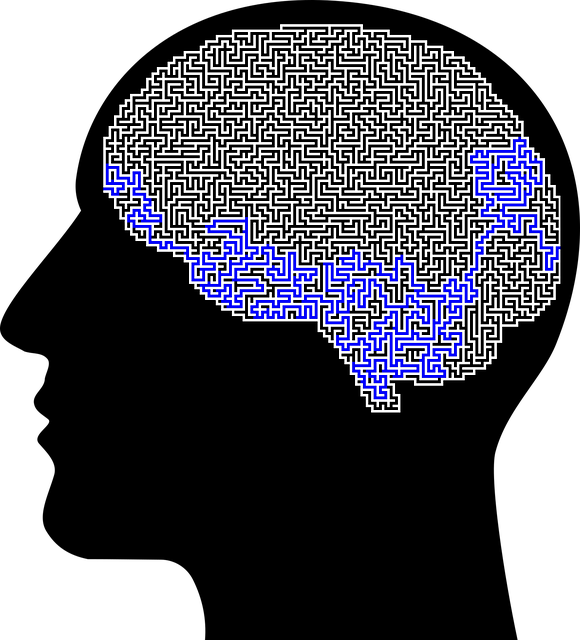Lafayette Acceptance and Commitment Therapy (ACT) programs empower communities by addressing unique mental health needs through tailored interventions. Using evidence-based practices, ACT promotes stress management, trauma healing, and emotional well-being. Engaging the community through interactive events, podcasts, and open dialogue increases participation and trust. Overcoming challenges like stigma and resource allocation requires creative marketing and collaboration with local leaders. Regular evaluations assess program impact, refining strategies for continuous improvement and enhanced mental health outcomes in diverse populations.
Community outreach programs play a vital role in enhancing access to mental health services, particularly in underserved areas. This article explores the implementation of Lafayette Acceptance and Commitment Therapy (ACT) programs, highlighting their significance and potential impact. We’ll guide you through understanding community needs, designing effective initiatives, engaging diverse populations, tackling challenges, and measuring success. By adopting these strategies, communities can foster well-being and create lasting change.
- Understanding Community Outreach: Why Lafayette Acceptance and Commitment Therapy Matters
- Designing Effective Programs: Key Components for Success
- Engaging the Community: Strategies to Foster Participation
- Overcoming Challenges: Addressing Barriers to Implementation
- Measuring Impact: Evaluating and Improving Your Outreach Efforts
Understanding Community Outreach: Why Lafayette Acceptance and Commitment Therapy Matters

Community outreach programs play a pivotal role in fostering connection and support within diverse populations. Understanding the unique needs and challenges of each community is essential for effective engagement. Lafayette Acceptance and Commitment Therapy (ACT) stands as a powerful tool in this context, offering a unique approach to addressing mental health concerns. By integrating Mind Over Matter principles, ACT empowers individuals to manage stress, overcome traumatic experiences, and cultivate a deeper sense of well-being. This therapeutic framework has proven particularly valuable in reaching underserved communities, providing Trauma Support Services that can transform lives.
Through community outreach, Lafayette ACT initiatives aim to bridge the gap between mental health resources and those who may be hesitant or unaware of available support. By employing creative strategies and tailoring interventions to local needs, these programs ensure that evidence-based practices like ACT reach individuals who might otherwise lack access to specialized therapy. This inclusive approach not only enhances overall community resilience but also empowers residents to take charge of their mental health journeys.
Designing Effective Programs: Key Components for Success

Designing Effective Programs requires a deep understanding of the community’s unique needs and strengths. At Lafayette Acceptance and Commitment Therapy (ACT), we emphasize tailored interventions that foster Communication Strategies, encourage Self-Esteem Improvement, and promote Emotional Regulation. A successful outreach program involves several key components, including active listening to community feedback, collaboration with local stakeholders, and integrating evidence-based practices.
By combining these elements, organizations can create initiatives that resonate deeply with the target audience. Whether focusing on youth, seniors, or other specific demographics, effective programs empower individuals through skills-building workshops, support groups, and accessible resources. This holistic approach not only addresses immediate needs but also cultivates long-term resilience and well-being within the community.
Engaging the Community: Strategies to Foster Participation

Engaging the community is a vital step in implementing successful outreach programs, such as Lafayette Acceptance and Commitment Therapy (ACT) initiatives. To foster participation, it’s essential to create an inclusive environment that welcomes diverse perspectives and interests. One effective strategy is organizing interactive events like wellness workshops or mental health awareness campaigns, which can attract and educate potential participants. Encouraging open dialogue and providing a platform for community members to share their experiences, fears, and hopes related to mental wellness can build trust and encourage active involvement.
Additionally, leveraging modern communication tools, such as producing a Mental Wellness Podcast Series, can extend the reach of these initiatives. By offering guidance on topics like anxiety relief through evidence-based practices, these podcasts cater to those seeking support and education in their own time. Incorporating regular feedback from the community ensures that content remains relevant and tailored to their needs, fostering continued engagement.
Overcoming Challenges: Addressing Barriers to Implementation

Implementing community outreach programs, such as those offering Lafayette Acceptance and Commitment Therapy (ACT), isn’t without its challenges. Organizations often face barriers that can hinder successful program integration. One significant challenge is reaching individuals who most need these services but may be hesitant to engage due to stigma or lack of awareness. Overcoming this requires creative marketing strategies that build trust and normalise mental health discussions.
Another obstacle lies in securing resources and training for staff, especially when dealing with diverse communities with varying cultural backgrounds. Providing culturally sensitive Crisis Intervention Guidance and tailoring programs like Depression Prevention initiatives to resonate with different populations is crucial for long-term acceptance and effectiveness. Effective collaboration with local leaders and community organisations can help navigate these challenges and ensure the successful implementation of outreach programs that positively impact mental health within the community.
Measuring Impact: Evaluating and Improving Your Outreach Efforts

Evaluating the impact of community outreach programs is a crucial step in ensuring their long-term success and effectiveness. By implementing robust measurement strategies, organizations like Lafayette Acceptance and Commitment Therapy (ACTP) can assess the reach and benefits of their initiatives. This process involves collecting data on various aspects, from the number of participants to changes in self-esteem and mental health status. Regular assessments enable ACTP to identify what’s working and where improvements are needed.
For instance, a risk assessment for mental health professionals can be integrated into outreach programs to gauge the impact on at-risk individuals. Additionally, encouraging participants to develop self-care routines during these sessions can lead to better mental health outcomes. These evaluations allow ACTP to refine their strategies, ensuring that each outreach effort not only reaches but also positively influences the community.
Implementing community outreach programs, such as Lafayette Acceptance and Commitment Therapy (ACT) initiatives, can significantly enhance local well-being. By focusing on key components like tailored engagement strategies, overcoming barriers, and measuring impact, organizations can foster meaningful participation and create lasting positive change. These efforts not only strengthen community bonds but also empower individuals to lead happier, more fulfilling lives.












